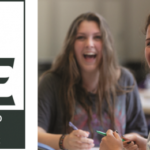During the year, it’s critical that students stay focused and on track with their studies – this will give them the best chance of success in their GCSEs or A levels, no matter how they are assessed. For many teenagers, this is easier said than done so we have prepared a short guide on how to support and motivate your child to get the best results possible in exams or teacher assessments.
1. Keep an eye on the prize
Many students do become disheartened about their ability to achieve their educational or career goals, whether that be Sixth Form College, University or a Vocational Course. As a parent, you can help by encouraging and engaging them in discussion about their goals, helping them feel that their goals are still achievable if they remain focused and keep on track with their studies. Whilst they cannot influence what’s going on around them, they do have control over the effort they put into their studies – they just might need a bit of help to fill in learning gaps and prepare for school assessments or summer exams.
2. Nurture a positive mindset
Many students can and have experienced significant disruption in their learning at school. This disruption can be very difficult for students to deal with. In addition to providing reassurance, help them stay positive by encouraging them to:
- keep in contact with other students and teachers to discuss their work, share experiences or collaborate on assignments
- trial different learning techniques to help them enjoy their learning more
- think about their own self-care and what steps they can take to maintain good mental health
3. Make study periods small(ish), regular and active
Whilst students may be able to catch up and prepare, schools are being encouraged to make their assessment processes and mock exams more rigorous. To help students that are struggling to get started or losing momentum with their studies, we suggest that they:
- start with the tasks that they think are interesting or important
- choose tasks that are neither too easy nor too difficult. For example, an easy task may be to watch a video on a topic while a too difficult task may be to write an entire essay in an evening. A more optimal task might be to identify 10 key points from the video or to write the essay plan
- set realistic study goals – mastering 1 hour of study is far more motivating than totally failing to study for 8 hours. It takes time to get into a good study routine so it’s better to start with realistic goals and step up study sessions gradually, rather than being overly ambitious at the outset!
- work on tasks with friends, for example co-produce mind maps and chapter summaries or provide written feedback on each other’s work
- make it more enjoyable, eg prepare a treat you only have while you read, like hot chocolate, or ask a friend to be a study buddy so you can talk through assignments or issues on topics
4. Create structure with daily goals
Goals give direction and at their best, are both concrete and achievable. Encourage your child to write a rolling, weekly “to do” list including both school and non-school activities:
- What is essential for each class? Homework deadlines?
- What assessments are coming up?
- What subjects/topics are weak and need some extra work?
- Time/activities with friends and family?
- Time for sport or hobbies?
- Downtime to unplug and relax?
If the list is too big, then make it more doable by picking 3-5 things for each day, making sure at least one is personal and not for school. If this is too difficult, sort them from high to low priority, and from easy to difficult.
It’s also a good idea to write down when they need to be done, as this will ensure deadlines are not missed. If any tasks are too big to do in a couple of hours, then break them down into one or two steps.
By reviewing and updating the list each night before bed, students will hopefully feel more positive and focused, with a clear plan for the days ahead.
These are just a few ideas for helping your child achieve the best results possible during this incredibly difficult time. For more ideas, visit our website to read other articles and advice.
With expert yet friendly tutors and small group online classes, our classes are tailored to individual needs and help students by:
- addressing subject knowledge gaps
- providing invaluable advice to help improve key subject skills and exam technique
- sharpening up their approach to revision and preparing for assessments or exams
To help you decide, here’s some feedback about our courses. For further information, call our team on 01727 744340 or email us.








 See More Genuine Reviews
See More Genuine Reviews